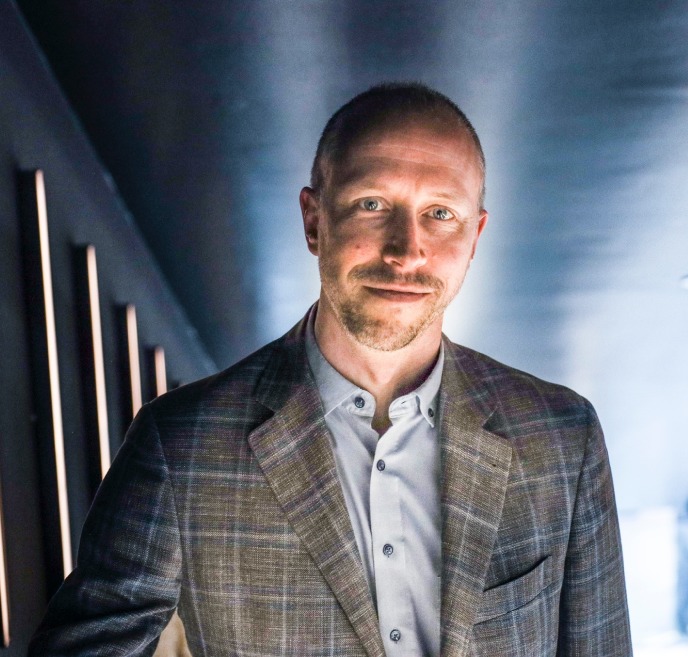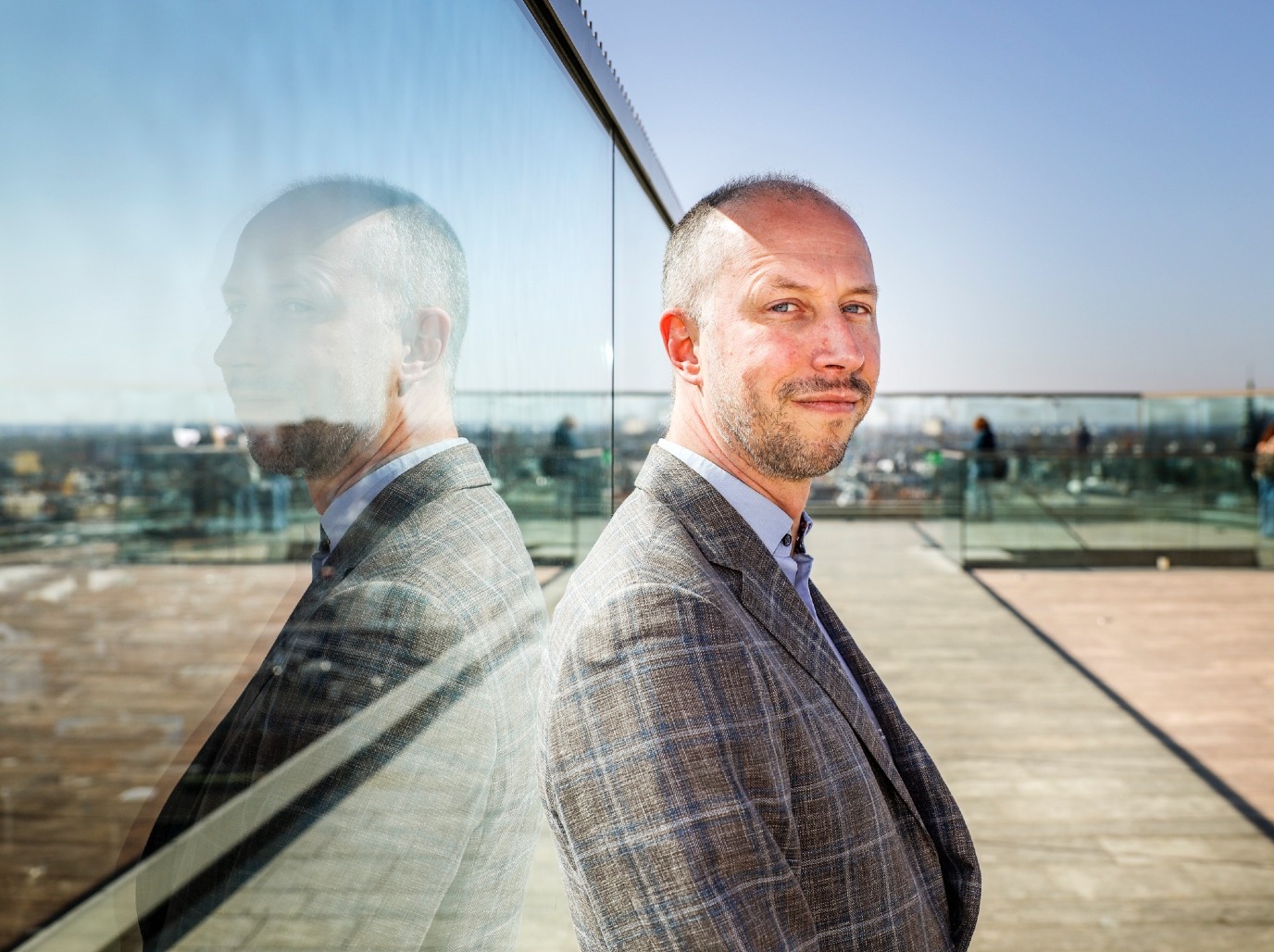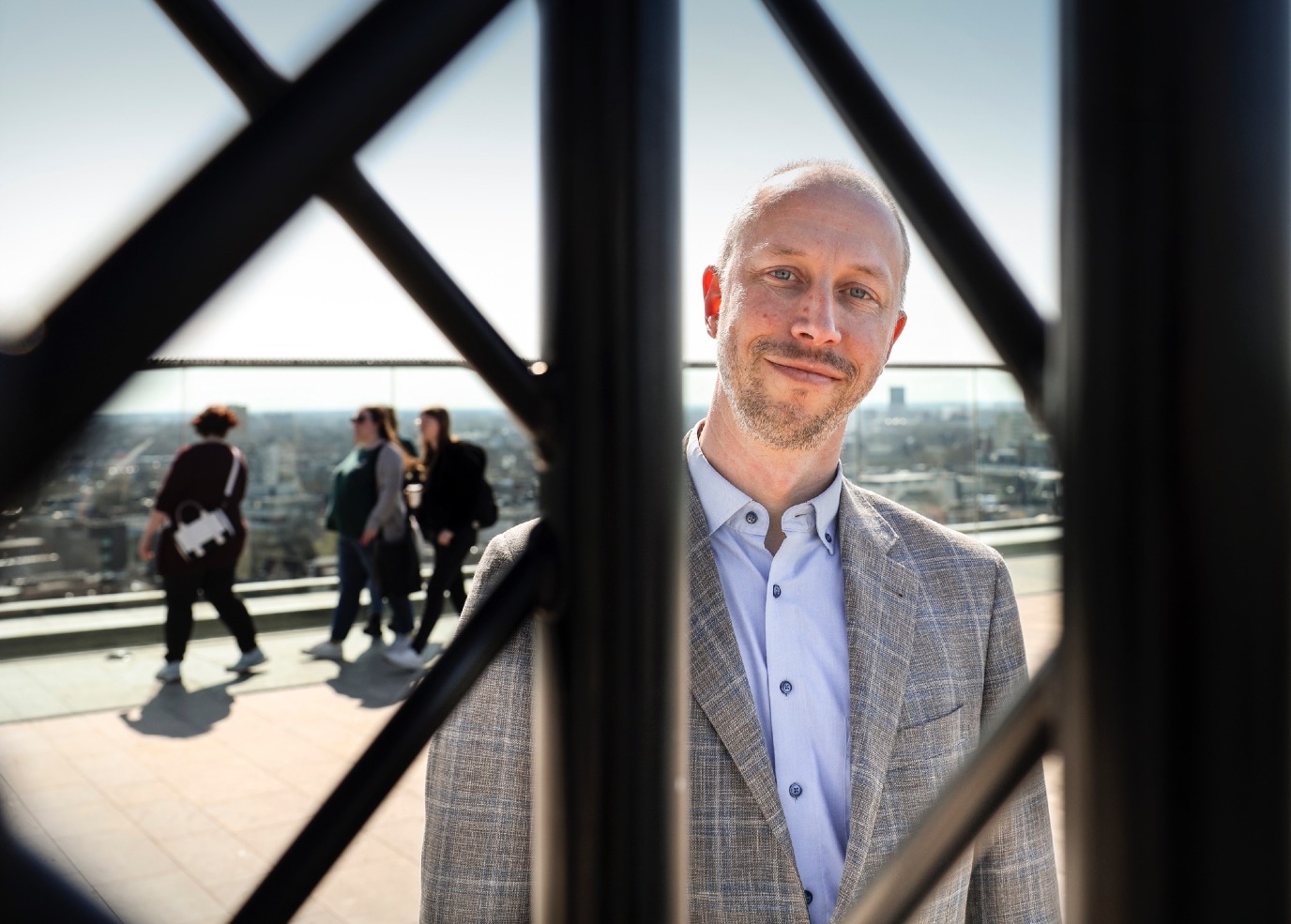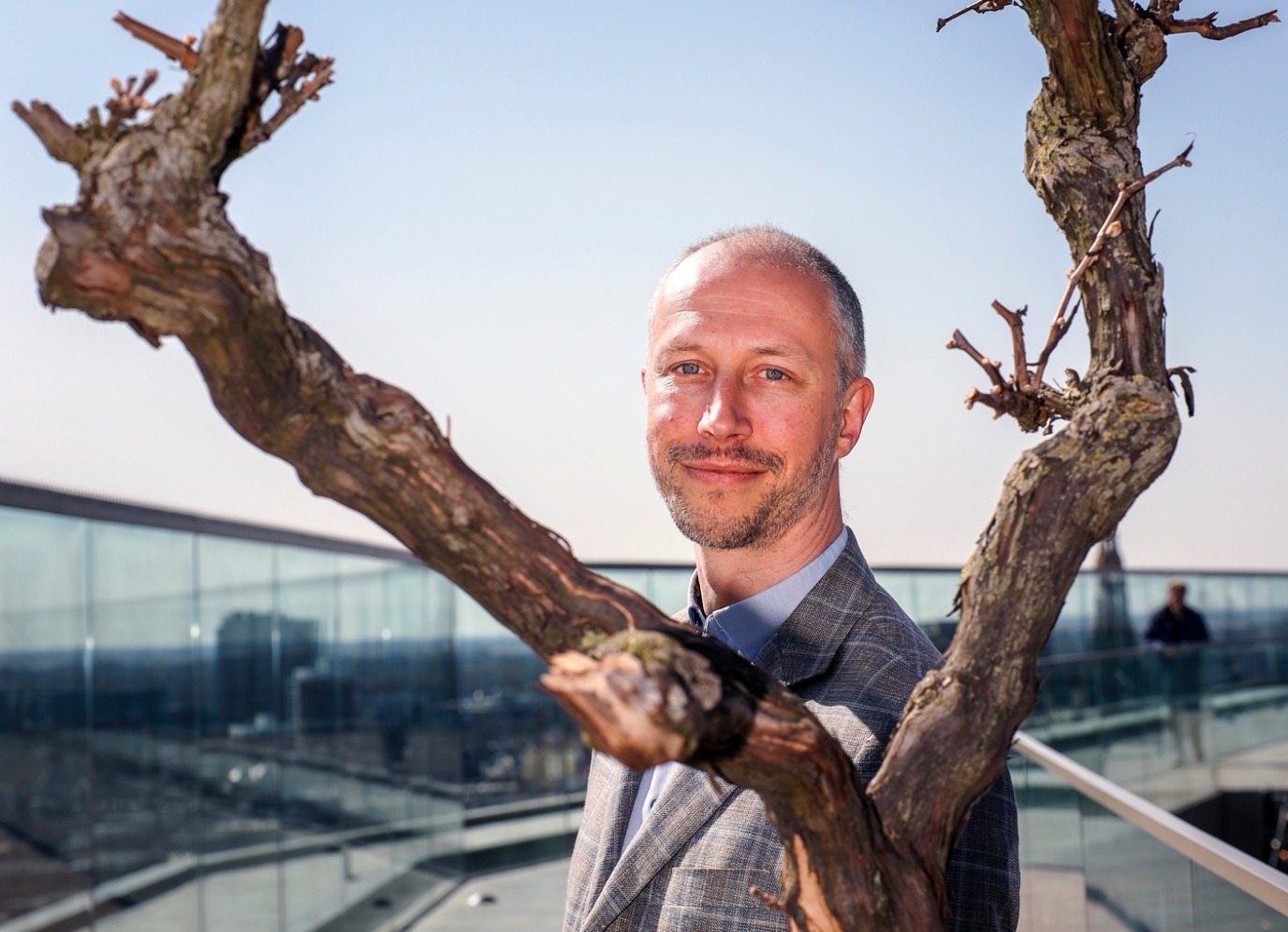European security: opportunity and threat to democracy

How strong is our democracy? This will be determined by what is currently happening on the world stage, argues Pieter de Wilde, Professor of European Politics & Society at the University of Groningen. At the moment, parties in Europe are frantically looking for their views on the defensibility of their countries—a topic that hardly mattered until now. Who are political allies? Who are opponents? Global changes are going to transform current political divisions, including in The Hague.
Text: Helma Erkelens / Photos: Henk Veenstra
The shift in the global power balance is pushing new topics onto the political agenda, argues Pieter de Wilde, who is researching this. In the process, a new political divide will also emerge. To make sense of this, he takes us through the course of history from 1945 onwards.

Left and right during the Cold War
‘During the Cold War, the political playing field was orderly,’ says De Wilde. ‘The US versus the USSR, capitalism versus communism, the age-old class struggle. In the Netherlands, it revolved around the redistribution of wealth: the left wanted a more equal redistribution, the right did not. European integration was hardly a topic for debate.’ After the fall of the Berlin Wall, the US was the only superpower left. The ‘Pax Americana’ preached wealth and peace for everyone through globalization, a free market, and a liberal democracy. Europe and the Netherlands fully participated: expansion of the EU, open borders, free movement, and the introduction of the euro followed. But not everyone profited from it. People saw their jobs disappear to low-wage countries and their scarce social housing flats go to immigrants and refugees. Populist parties were shooting up.
Globalism versus nationalism
In the nineties, the political battle shifted from wealth distribution to identity. Cosmopolitans supported open borders and international cooperation, nationalists called for ‘our own people first’, ‘close the borders’, and less EU. ‘You can’t negotiate about identity,’ according to De Wilde. ‘It hardens the battle.’ This polarization also affects the democratic game: elections are no longer seen as a sporting event that you can lose as well but as a battle to the death. ‘At that point, losing is no longer an option and that undermines the democratic constitutional state,’ he warns.
The gap is widening
De Wilde sees this danger in the Netherlands as well. Society is becoming increasingly divided: voters for the Freedom Party (PVV), Forum for Democracy (FvD), and the Socialist Party (SP) are turning against globalization and European integration, while parties such as Democrats ’66 (D66) and GreenLeft/Labour (GroenLinks/PvdA) embrace these aspects. A divide also runs between practically and theoretically educated people. People who make money with their hands, who have to earn their living here in the Netherlands, and people who make money with their brain, who are able to work online anywhere in the world. ‘These groups meet each other less and less, stopped talking to each other. This also leads to harder debates in politics and makes it extremely difficult to reach a compromise. And that is a danger to our democracy.’

From open borders to protection
Meanwhile, the global playing field has changed drastically. Trump torpedoed the Pax Americana through his trade wars, NATO criticism, and reluctance to support Ukraine. ‘The question for the European countries is: Is the US still an ally or a risk?’ says De Wilde. In Brussels, there is a growing realization that Europe will have to protect itself. The foreign policy is now less aimed at development and human rights and more on protection from China, Russia, and the US. ‘A new political story is unfolding: the EU as protector of its own industry, safety, food and energy supply. All member states realize that we cannot do this on our own. The new security story makes former political contrasts less relevant.’
New flexibility
This leads to peculiar actions. De Wilde points out that Italian Prime Minister Meloni was sent to Trump on behalf of the EU to discuss with him that he would exempt the EU from his import tariffs. ‘The fact that they asked a far-right head of state would have been unthinkable before, but apparently, there is general agreement. It happened because, ideologically, she is somewhat closer to Trump and him and President of the European Commission Von der Leyen do not get along very well. Meloni — who is not a fan of the EU — was suddenly prepared to represent Europe in her turn. She shelved her pro-Russian attitude and is obviously aware that the interest of the EU also serves Italy. In short, you can tell that the overarching interest of security is gaining the upper hand. The polarizing themes disappear into the background and the edges are taken off in the political debate.’
Security as unifying factor
De Wilde sees the start of a trend in the Netherlands as well. The People’s Party for Freedom and Democracy (VVD) and the Christian Democratic Alliance (CDA) have embraced the security story. D66 and GreenLeft/Labour are joining them. ‘A widely supported realization is emerging in society: we have to protect the Netherlands and we can’t do it alone. The contention in the political debate is balanced out by the feeling that we have to figure this out together. That feeling is crucial to a healthy democracy.’

Be aware of fear
Nevertheless, De Wilde issues a warning: the security story could turn into paralyzing fear. ‘When it has reached a point where you have to declare a crisis, the democracy is put aside. The mechanisms of legislative, executive, and supervisory division of powers no longer work then. Fear also causes us to no longer take a critical look at politicians, stop engaging in debates, and it could lead to abuse of power. Look at how Hitler seized power in 1933 after the Reichstag fire.’
We need opposition
The new story will attract opposition, De Wilde expects. And he hopes so, too: ‘A healthy democracy needs it to function properly.’ Opposition ensures there is balance. However, we can only wait to see what this opposition will look like.
More information
More news
-
07 January 2026
How music is helping to revive the Gronings dialect
-
16 December 2025
How AI can help people with language impairments find their speech
-
18 November 2025
What about the wife beater? How language reinforces harmful ideas
